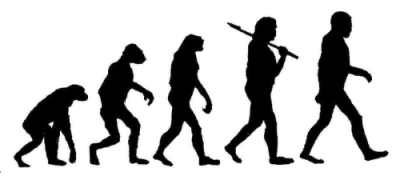Welcome to DU!
The truly grassroots left-of-center political community where regular people, not algorithms, drive the discussions and set the standards.
Join the community:
Create a free account
Support DU (and get rid of ads!):
Become a Star Member
Latest Breaking News
Editorials & Other Articles
General Discussion
The DU Lounge
All Forums
Issue Forums
Culture Forums
Alliance Forums
Region Forums
Support Forums
Help & Search
Religion
Related: About this forumOn Finding God (Part 2)
Part 1Part 2
Part 3
Part 4
So for the two or three of you out there who aren’t already way ahead of me, since the thing people call God cannot be located anywhere in the universe around us our Heavenly Waldo has to be hiding inside us somewhere. And he ain’t in Joe’s pancreas.
As luck would have it, I have actually been able to run a sort of informal experiment regarding the location of God inside my own skull. You see, I have spent most of my life living with the joys of depression. As maladies go it could be a lot worse. All my appendages work. In fact, from the neck down I’m damn near indestructible. I have an immune system that can kick King Kong’s ass. I can digest anything I can catch and chew up. I can see well enough to navigate doors and corners. But it’s like the Master half of Masterblaster constantly wants to say, “Fuck it, I give up, you can have the pig shit.”
For most people who suffer depression, it runs on a circadian cycle. At some point in the course of the day there occurs a change in one’s mental state when cognition and energy seem to increase. The time and degree of that change may depend on a host of factors inside and outside your head, but whenever it does the “lights come on” and you feel human again. So when proselytizers ask me if I believe in God, I tell them that I create him every day and kill him again every night. It’s almost as much fun as telling them you’re a Zen Baptist.
There are some misconceptions about depression that might shed some light on this whole God thing. Remember this image?

All five of these figures are identical. None of them is clinically depressed because they are all walking. You see, the experience of depression is not really sadness. Sadness is one of the results of depression because you can’t get anything done. You can’t move. You can’t go.
It seems to me that movement or transition from one place to another, either physically or conceptually, is the most fundamental part of our identity as a species. It defines us more than any other concept. We walked upright out of Africa and we haven’t stopped moving since. Examples of the importance of movement in culture are legion. We want to know where relationships, careers, and markets are going. We chart cultural trends, write music in movements, read novels with a narrative arc, and generally dance around all over the place as if nobody was the wiser (if we’re doing it right).
One of the best descriptions of depression I have seen lately is from Rollo May who said, “Depression is the inability to construct a future.” So in the end, for those of you who are already ahead of me on the path of morbidity so I will go there with you, people who suffer from the most extreme depression sometimes end their lives with the feeling that they “cannot go on”.
Movement seems to be the underpinning of both parts of the human experience. So in the case of existing in the world around us, a scientific hypothesis is a prediction about what we will know. And if we make a prediction about the specific gravity of water, the speed of light, or the effect of sugar on our fat asses we get a white coat and a Bunsen burner or whatever and set about proving our hypothesis. The process of establishing proof, which includes verification by others, gives us intellectual predictability. We can agree on the properties of the physical world and proceed forward in time and space accordingly. So the practice of science gives us the benefit of air conditioning and ice in our scotch.
So what of the other part of the human experience? That’s all that squishy introspective emotional stuff, and faith is what we use to project that part of the human condition into the future. If a scientific hypothesis is a prediction about what we will know, faith is a prediction about how we will feel. And the practice of religion gives groups of people emotional predictability. They all feel more or less the same way about something. So now we can all agree that some certain kind of heaven is a cool place, those people whose heads we need to chop off will never make it there, and that volcano is just generally pretty fucking scary.
For tens of thousands of years we have had at our disposal all sorts and kinds of tools for the quantification of emotion that actually work exceptionally well to predict emotional trajectory, or faith. They are called “the Arts”. And the arts are what we make to describe that which is inside us that cannot get out and be examined any other way.